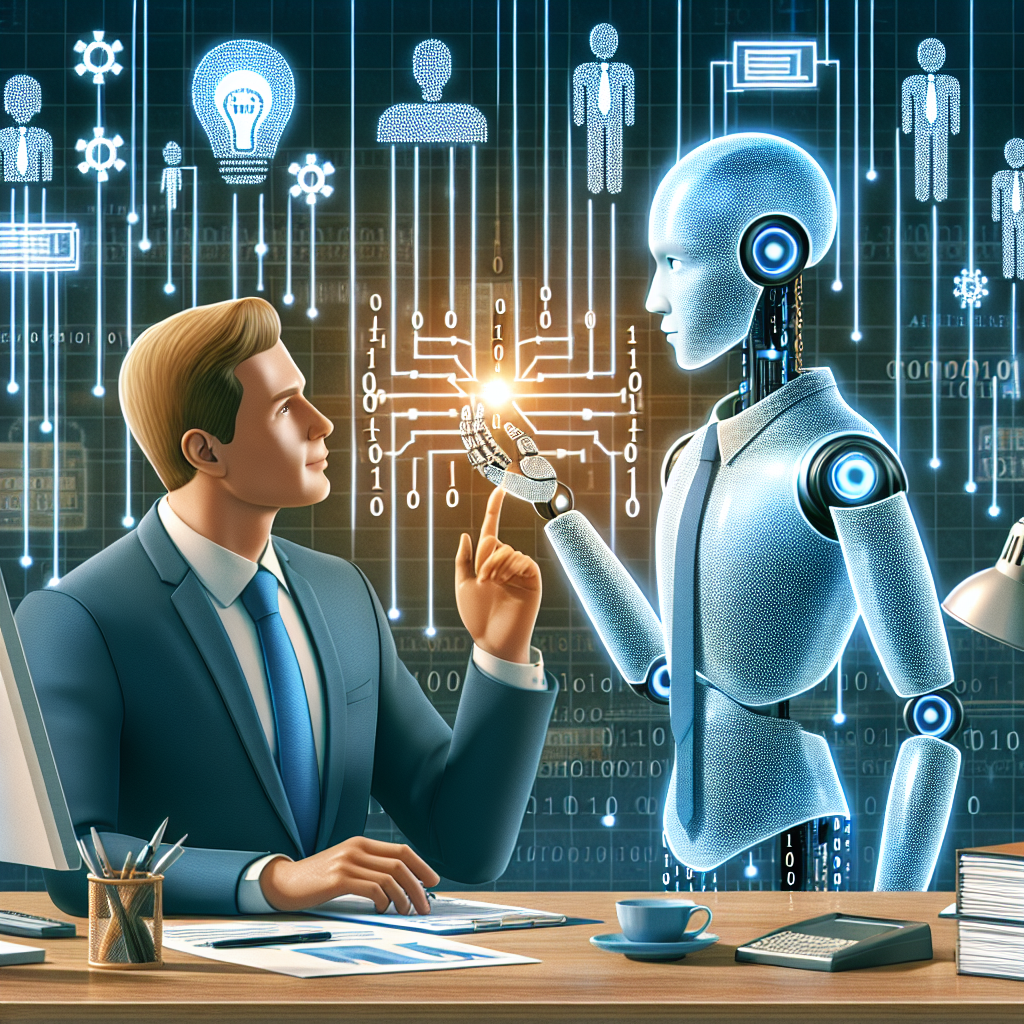In recent years, the integration of artificial intelligence (AI) in various industries has become increasingly prevalent. One area where AI-driven solutions are making a significant impact is in human resources (HR) processes. From recruitment and onboarding to performance management and employee engagement, AI is transforming the way HR professionals operate. In this article, we will explore the benefits of integrating AI-driven solutions in HR processes, as well as some common concerns and frequently asked questions about this technology.
Benefits of AI-driven Solutions in HR Processes
1. Improved Recruitment and Onboarding
AI can streamline the recruitment process by analyzing resumes, screening candidates, and identifying the best fit for a job opening. AI-powered tools can also automate the onboarding process, providing new employees with the necessary information and resources to get started quickly and efficiently.
2. Enhanced Employee Engagement
AI can help HR professionals better understand employee behavior and preferences, allowing them to tailor engagement strategies to individual needs. By analyzing data on employee sentiment, AI can identify trends and patterns that can inform decision-making and improve overall employee satisfaction.
3. Increased Efficiency and Productivity
AI-driven solutions can automate repetitive tasks, such as scheduling interviews, processing payroll, and managing benefits, freeing up HR professionals to focus on more strategic initiatives. This increased efficiency can lead to higher productivity and cost savings for organizations.
4. Personalized Learning and Development
AI can customize learning and development programs based on individual employee needs and preferences. By analyzing data on employee performance, AI can recommend training courses, development opportunities, and career paths that align with each employee’s goals and objectives.
5. Data-driven Decision Making
AI can analyze large volumes of data to provide HR professionals with actionable insights and recommendations. By leveraging predictive analytics, AI can help HR teams make informed decisions about talent management, workforce planning, and succession planning.
Common Concerns about AI-driven Solutions in HR Processes
1. Data Privacy and Security
One of the primary concerns about AI-driven solutions in HR processes is the protection of sensitive employee data. HR professionals must ensure that AI systems comply with data privacy regulations and industry standards to safeguard employee information from unauthorized access or misuse.
2. Bias and Fairness
AI algorithms can unintentionally perpetuate bias and discrimination if they are trained on biased data or flawed assumptions. HR professionals must carefully monitor and evaluate AI systems to ensure they are fair and equitable in their decision-making processes.
3. Lack of Human Touch
Some employees may feel uncomfortable interacting with AI-driven solutions for HR processes, preferring a more personal and human-centric approach. HR professionals must strike a balance between automation and human interaction to maintain a positive employee experience.
4. Skills Gap and Training
Implementing AI-driven solutions in HR processes may require upskilling or reskilling HR professionals to effectively leverage these technologies. Organizations must invest in training and development programs to ensure HR teams have the necessary skills and expertise to successfully integrate AI into their workflows.
5. Over-reliance on Technology
While AI can enhance efficiency and productivity in HR processes, there is a risk of over-reliance on technology at the expense of human judgment and intuition. HR professionals must use AI as a tool to support decision-making, rather than replace critical thinking and strategic planning.
Frequently Asked Questions about AI-driven Solutions in HR Processes
1. How can AI improve the recruitment process?
AI can streamline the recruitment process by automating resume screening, candidate sourcing, and interview scheduling. AI-powered tools can also analyze candidate data to identify the best fit for a job opening, saving time and resources for HR professionals.
2. What are the benefits of using AI for employee engagement?
AI can help HR professionals better understand employee behavior and preferences, allowing them to personalize engagement strategies and improve overall employee satisfaction. By analyzing data on employee sentiment, AI can identify trends and patterns that can inform decision-making and drive employee engagement initiatives.
3. How can AI support learning and development programs?
AI can customize learning and development programs based on individual employee needs and preferences. By analyzing data on employee performance, AI can recommend training courses, development opportunities, and career paths that align with each employee’s goals and objectives, leading to improved skills development and career advancement.
4. What are the risks of bias and discrimination in AI-driven HR processes?
AI algorithms can unintentionally perpetuate bias and discrimination if they are trained on biased data or flawed assumptions. HR professionals must carefully monitor and evaluate AI systems to ensure they are fair and equitable in their decision-making processes, mitigating the risk of bias and discrimination in HR practices.
5. How can HR professionals leverage AI for data-driven decision making?
AI can analyze large volumes of data to provide HR professionals with actionable insights and recommendations. By leveraging predictive analytics, AI can help HR teams make informed decisions about talent management, workforce planning, and succession planning, enabling data-driven decision making and strategic planning.
In conclusion, the integration of AI-driven solutions in HR processes can provide numerous benefits for organizations, including improved recruitment and onboarding, enhanced employee engagement, increased efficiency and productivity, personalized learning and development, and data-driven decision making. However, HR professionals must address common concerns such as data privacy and security, bias and fairness, lack of human touch, skills gap and training, and over-reliance on technology to successfully implement AI in HR workflows. By addressing these concerns and leveraging AI as a tool to support decision-making and strategic planning, HR professionals can unlock the full potential of AI-driven solutions in transforming HR processes and driving organizational success.

